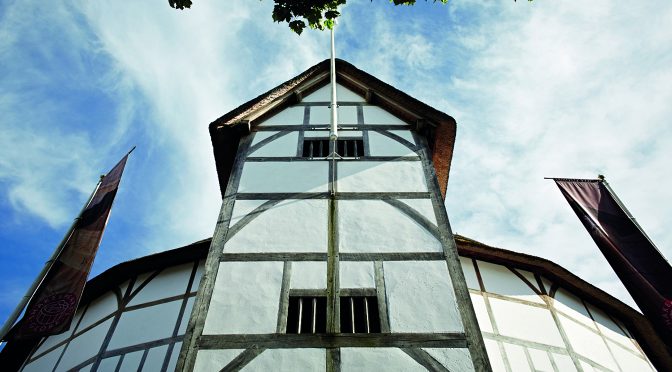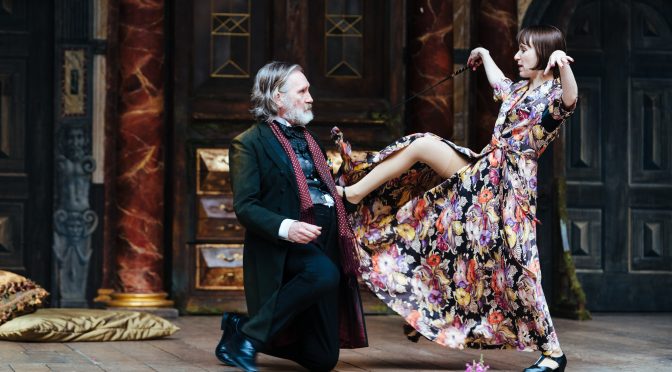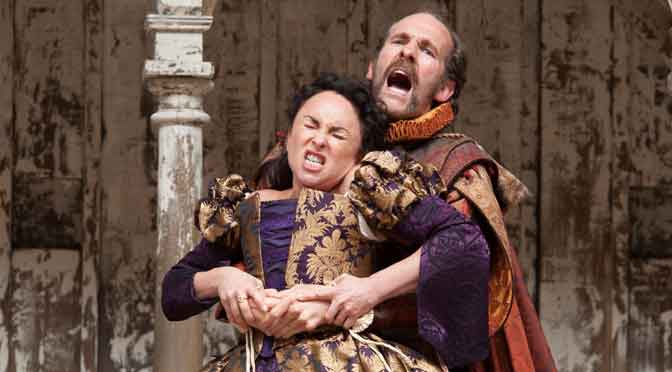The three groups of characters within Shakespeare’s much-loved comedy provide possibly too easy a scheme to judge a production. But given director Dominic Dromgoole’s expertise with the work of Oscar Wilde, here’s hoping he forgives me for not resisting temptation and following it for a rough assessment of his superb 2013 production.
First, the doubled-up roles of those who rule – Athens and the fairy world – deliver two excellent performances. John Light makes a forceful Theseus and downright virile Oberon: there’s a perfect diffidence about his marriage to a not-so-willing bride and a gorgeous Irish brogue as he plays tricks on his fairy queen. Taking to the stage she is now in charge of as artistic director, Michelle Terry is wonderful as a still fiery Amazon and a Titania who engenders a good deal of emotion.
Our “hempen homespuns”, the workmen who put on a play within the play, are also superb. Led by Pearce Quigley as Bottom, a role he was surely born to play, the clog-wearing workers get laughs before they open their mouths. Quigley has some excellent ad-libbing and a deadpan tone that makes a nice change for the role; his ironic delivery of a “monstrous little voice” and an actor’s temper tantrum are two of many highlights. Moonshine’s dead dog is another!
With the final group of the four Athenian lovers, things aren’t so good. Demetrius and Lysander are too cartoonish and Hermia a touch bland. It’s left to Sarah MacRae’s Helena to get the laughs, try as hard as the others do, creating unbalanced scenes that drag a little. Two out of three doesn’t sound that great. But Dromgoole has a vision for the play as a whole that sets his work apart. Steeped in rural mysticism (aided by the work of designer Jonathan Fensom) that Shakespeare’s audience would have recognised and is appropriate for the venue, there’s a powerful cohesion to the production. With a surprising amount of violence, danger and some pretty scary spirits, Dromgoole brings a tension that the play can sometimes lack. You probably can’t have a perfect production of A Midsummer Night’s Dream but, with a nod to an unsettling nightmare, this one comes respectably close.
Available until 28 June 2020
To support, visit www.shakespearesglobe.com
Photo by John Wildgoose



